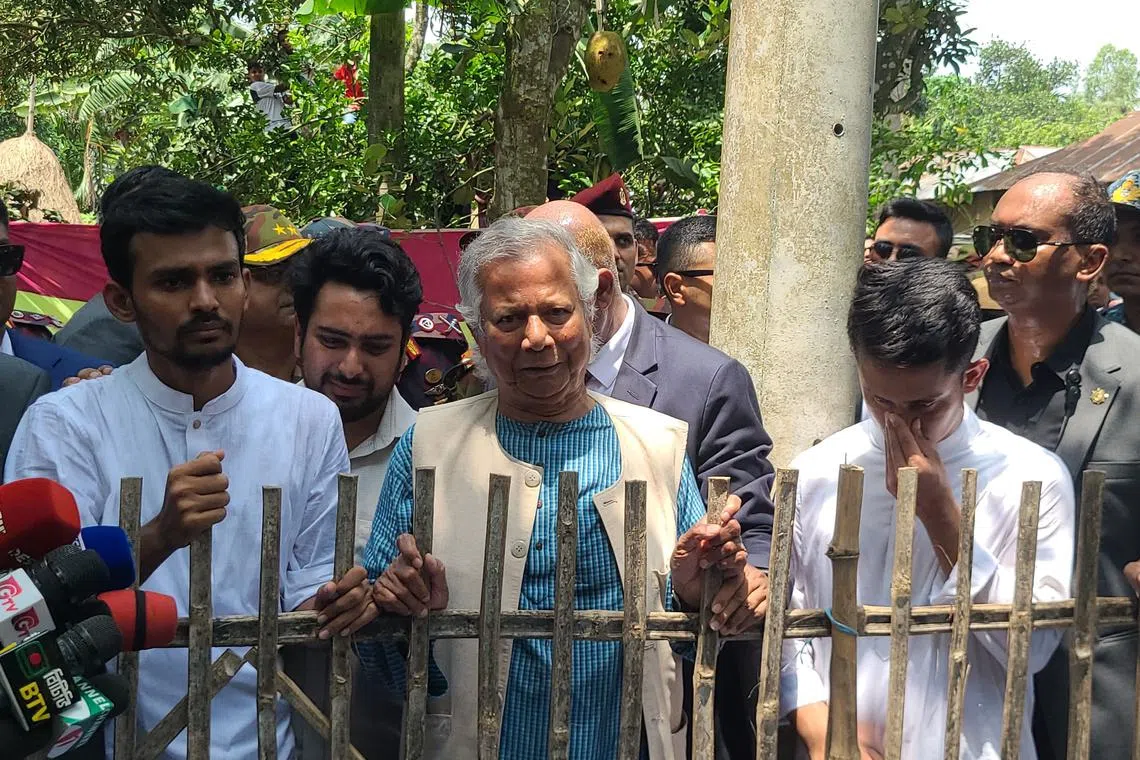Bangladesh’s leader Yunus acquitted in graft case just days after being sworn in
Sign up now: Get insights on Asia's fast-moving developments

Dr Muhammad Yunus (centre) was acquitted, along with 13 other people, by a special court in Dhaka.
PHOTO: AFP
Follow topic:
DHAKA – Bangladesh’s leader Muhammad Yunus has been acquitted in a graft case filed by the nation’s Anti-Corruption Commission, just days after he was sworn in to run an interim government
A special court in Dhaka acquitted the economist and Nobel Prize laureate, along with 13 other people, reported The Daily Star on Aug 11, citing an official at the anti-graft commission. If Dr Yunus was found guilty of money laundering in that case, he would have faced the risk of life imprisonment.
A day before he was sworn in as chief adviser to the interim government with prime ministerial powers, Dr Yunus was acquitted in a labour violation case in which he had been sentenced to six months in jail. Human rights lawyers have described both cases as politically motivated.
A lawyer for Dr Yunus did not respond to calls from Bloomberg News.
It is a swift reversal of fortunes for Dr Yunus, 84 – his supporters say Ms Hasina was behind the legal pressure. He had been frequently portrayed as a nemesis to the former prime minister, who once accused Dr Yunus of “sucking blood from the poor”. Dr Yunus has called her downfall a “second liberation” to the country.
After Ms Hasina, 76, fled the country last week
Dr Yunus, who pioneered microfinance, is untested as a political administrator, adding to the uncertainty on how he will go about rebuilding a country of over 170 million people. He has spent the first days in his new role urging for calm and warning against attacks on minority groups in the mostly Muslim country.
His interim government needs to shore up the economy, which is highly dependent on a massive garments export sector and now a US$4.7 billion (S$6.2 billion) programme from the International Monetary Fund.
Foreign currency reserves need to be stabilised after dropping to US$20.5 billion in July, from a peak of US$48 billion about three years ago. Bloomberg

